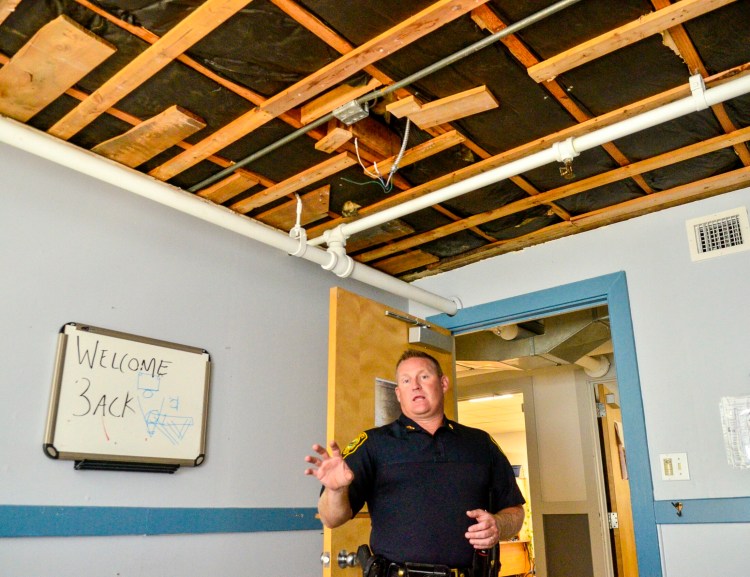AUGUSTA — Leasing a new downtown Augusta police station built by a private developer does not appear to the be financial game-changer some city officials had hoped.

City officials had hoped to be able to use funds generated by all the city’s various tax increment financing districts, to pay the cost of leasing a new police station, if it were to have one built by a private developer and leased back to the city. Doing so could lessen the impact on taxpayers, because if more money came from TIFs, less money would be needed directly from annual property tax payments.
They learned Monday, in a meeting with state Department of Economic and Community Development officials, they can use TIF funds not already committed to other projects — but not to pay the entire cost of the lease.
TIF funds could only be used to pay lease costs connected to the actual construction of the new building — not for other costs such as the developer’s profit, overhead, development fees and finance costs. According to City Manager William Bridgeo, that means as much as 60% of the total project cost would not be able to use TIF funds.
Based on that new information and a financial analysis of each project by Ralph St. Pierre, finance director and assistant city manager, leasing at the downtown site appears to be the most expensive option currently under consideration by the city, even if TIF funds are used as allowed.
“It doesn’t appear it’s a game-changer,” Bridgeo said Wednesday of the potential to use TIF money to help cover lease costs.
Bridgeo had said previously that using TIF funds to pay lease costs could potentially reduce the cost to taxpayers so much for a downtown police station it could have possibly moved the downtown site from the most expensive option to the least expensive option.
That now appears to not be the case. According to data put together by St. Pierre, leasing a building that’d be built downtown by a private developer, for 30 years, would increase property taxes by a total of $9.3 million. If the city built a new station downtown and borrowed money to do so over 20 years it would require $5.8 million more in total property taxes. Or a third proposal, to build on Union Street next to the existing station, where construction costs would be less due to a flatter, larger lot, and borrow money over 20 years, would increase property taxes by a total of $1.6 million.
City councilors will conduct a public hearing, seeking input on the new station and where it should be located, at 6:30 p.m. Thursday in council chambers at Augusta City Center.
If city councilors pick a location for the new station by the end of March, Bridgeo said, there should be enough time to take the question of funding the proposal to residents in a referendum vote in June.
The downtown proposal is estimated to cost about $21.5 million to build. That cost could be partially offset by selling the Union Street property where the station is now. The Augusta Housing Authority has offered to buy that site — continuing to use part of the building there as its offices while also developing new rental housing there — for its appraised value of around $650,000.
The Union Street site is estimated to cost $18.3 million, up by about $1 million from a previous estimate, with the biggest change being the addition of funds to stabilize the location, where recent testing indicated the soil quality is poor.
Some councilors have expressed preference for the Union Street site because of its cheaper development costs while others, including Mayor David Rollins, have said they favor the downtown site because they believe building a new station there could revitalize an otherwise blighted part of downtown, at the corner of Laurel and Water streets.
Some councilors, meanwhile, recently expressed interest in a third potential site, the former Hannaford location on Willow Street. That location, just across Cony Street from Augusta City Center on the east side of the Kennebec River and adjacent to the Inn at City Hall which about two decades ago was the police department.
Bridgeo said Wednesday he has had conversations with the Willow Street property owners, who have expressed a willingness to sell the property. He’s also talked Hannaford officials, because the firm still has a lease for the vacant building at the Willow Street site for several more years, who have expressed interest in possibly buying out the remainder of that lease.
But Bridgeo said to look much further into that site will require spending city funds, something he said he needs council approval before doing. He said if a majority of councilors direct him to do so, he’d seek to have soil testing done at the former Hannaford site and consider having an architect modify existing designs for the potential new police station for that site.
Send questions/comments to the editors.




Comments are no longer available on this story